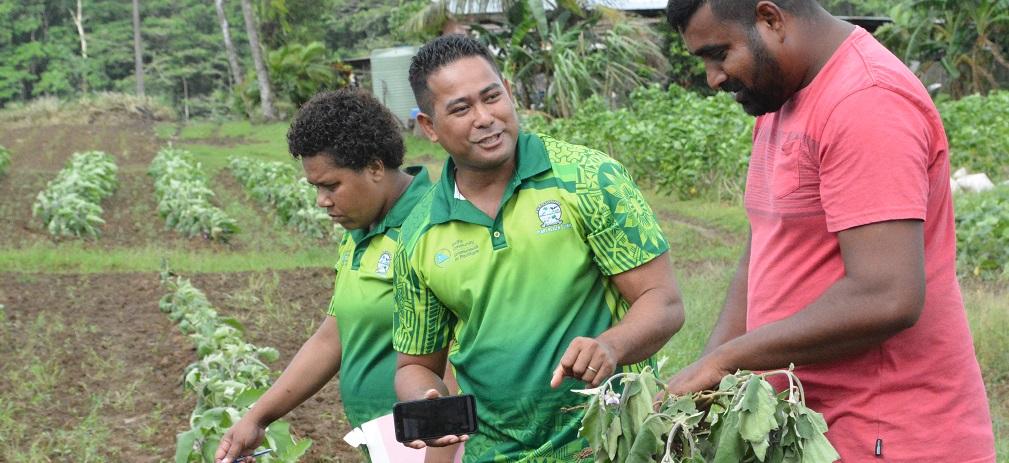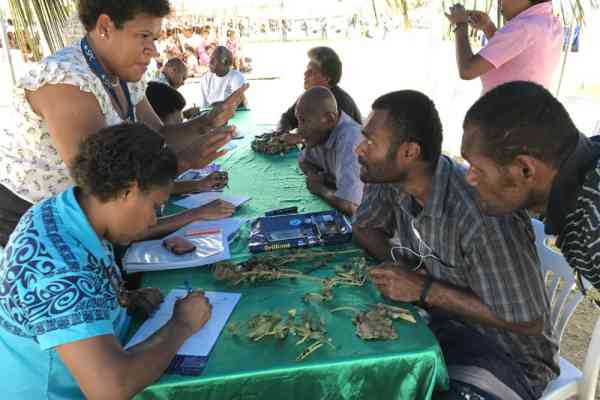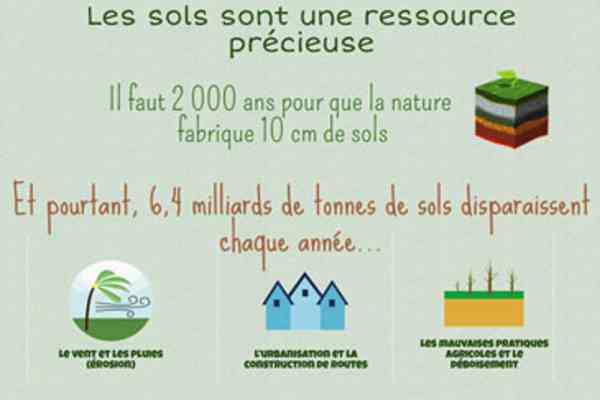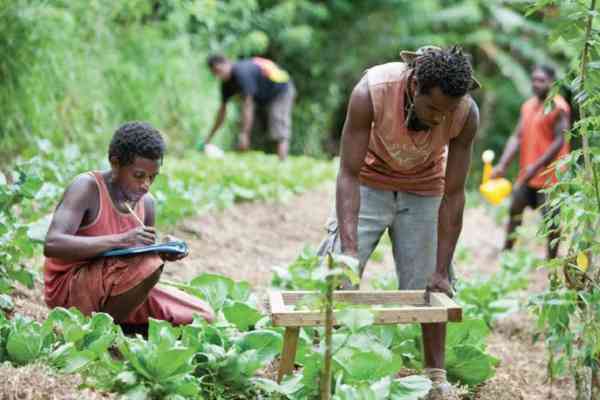Field Connections- How technology is supporting Pacific agriculture
Standing in the middle of a field around a withered plant, the Pacific Community’s Plant Health Doctors conducted their first virtual meeting as they continue their work on the frontline by providing vital support for farmers in Fiji and the region.
Plant Health Doctor Mr Mani Mua conducted the virtual meeting from a farm located in Baulevu, in the Province of Naitasiri in Fiji accompanied by the Fiji Ministry of Agriculture Extension Officers and farmers from the area, linking up with the regional plant health doctor network and plant health experts from Australia and New Zealand.
SPC, through its Land Resource Division (LRD) has been training plant health doctors and conducting plant health clinics since launching the pilot program in the Solomon Islands in March 2012 as Agriculture Extension officers continue to face challenges in delivering effective services to large volumes of farmers in rural and remote communities.
To overcome these challenges, a new, free phone application, the Pacific Pest and Pathogens app was developed for use by agriculture extension officers and farmers which enables them to quickly diagnose and get treatment advice for pest and disease threats to horticulture in Pacific Island countries and territories (PICTs). Adding to the app’s capacity to provide instant assistance to farmers is the addition of a new “WhatsApp” social media group in late 2017. Using WhatsApp, owned by Facebook, an extension officer – or farmer – can instantly send a text message or photo seeking assistance from the group’s growing number of experts.
“Agriculture extension officers are helping farmers to identify diseases and fight pests with the help of the handy mobile phone app which contains 350 factsheets and is particularly helpful in providing information to people in remote locations. In other words, using the app and WhatsApp, we as extension and research officers can be in many places at one time and more useful to farmers than ever before,” explained Mr Mua.
With exchange of real time information and visual inspection of diseased plants from the farm, plant health doctors and extension officers are able to provide remedies to the farmers and collect samples for testing and analysis. During the plant health clinics, farmers from the local area bring samples of plants from their farm which are infected by disease or infested with pests, for diagnosis and ideas for management.
“At the same time, we are also building our data base on local farmers and their needs. During the clinics, farmer information is collected and pests and pathogens within the locality can be identified, isolated and treated before it spreads or ruins entire seasonal crops. This is a life line for farmers,” added Mr Mua.
For a farmer like Mr Saqa Dewan whose livelihood is dependent on his seasonal crops, having plant health doctors at his door steps and providing their service has been a game changer.
“We often continue to experiment with various remedies when our crops are infested and diseased, but it is expensive and doesn’t work. Now, for the first time, we are able to learn from the extension officers, be involved in diagnosis and lean the use of proper pesticides and other remedies we can use so that our hard work does not go to waste,”Mr Dewan.
Implemented by the Pacific Community, the project focuses on integrated crop management (ICM) and identifying plant health management strategies, which has been funded by the Australian Centre for International Agricultural Research (ACIAR) with support from the University of Queensland.



